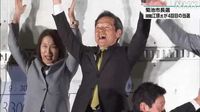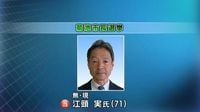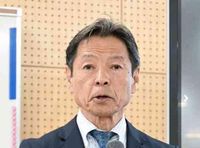In a decisive victory, Minoru Eto, the incumbent mayor of Kikuchi City, has secured his fourth term in office during the mayoral election held on April 13, 2025. The election saw Eto, who is 71 years old, triumph over two independent challengers: Heigoro Hiraki, a former city council member aged 48, and Ayae Miyauchi, a former deputy director of the city’s tourism association, who is 43. The election results were marked by a voter turnout of 50.87%, which is notably lower than the 55.02% turnout recorded during the last election in 2017, setting a new record for the lowest turnout in the city’s history.
Eto received a total of 7,567 votes, solidifying his position as a prominent figure in the local political landscape. His re-election comes at a time when Kikuchi City faces significant challenges, including traffic congestion exacerbated by the recent expansion of TSMC (Taiwan Semiconductor Manufacturing Company) into the region. This development has heightened local concerns about infrastructure and public transportation, prompting discussions about revitalizing public transit options to alleviate the growing traffic issues.
The election was characterized by a three-way race, with Eto’s experience as a former city council member giving him an edge over his opponents. Despite the challenges posed by the newcomers, Eto's campaign focused on continuity and stability, appealing to voters who may have been hesitant to embrace change during uncertain times.
In light of the low voter turnout, many observers are questioning the factors that led to this decline in civic engagement. Local analysts suggest that apathy towards the electoral process and dissatisfaction with the choices presented may have contributed to the lack of participation. The 5.15-point drop in voter turnout from the previous election is particularly concerning for local officials, as it reflects a growing disconnect between citizens and their elected representatives.
As Kikuchi City moves forward under Eto’s leadership, he faces the task of addressing the pressing issues of transportation and infrastructure while also working to re-engage the community in the political process. The city’s residents have expressed frustration over chronic traffic congestion, and many are calling for immediate action to improve public transportation systems.
In the broader context, the recent developments in Kikuchi City mirror trends seen across Japan, where declining voter turnout has become a common theme in local and national elections. Experts argue that revitalizing interest in the electoral process is crucial for the health of democracy in the country.
Minoru Eto’s victory not only highlights his political resilience but also raises questions about the future direction of Kikuchi City. With TSMC’s expansion, the city is at a crossroads, and the decisions made in the coming years will significantly impact its residents’ quality of life.
As the new term begins, citizens and local leaders alike will be watching closely to see how Eto navigates the challenges ahead and whether he can foster a renewed sense of community engagement in the political process.








